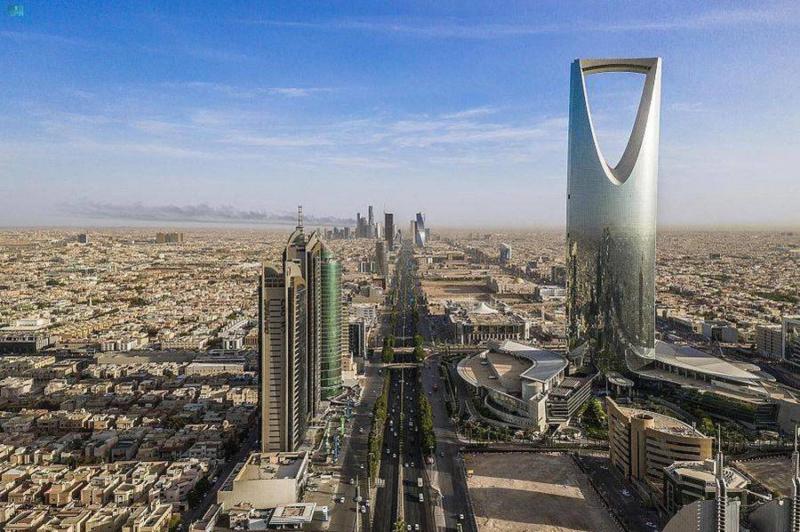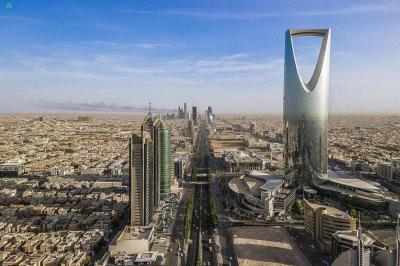Since its establishment following the foundational stone of its revival "Unity" by the late founding King Abdulaziz bin Abdulrahman Al Saud, the Kingdom of Saudi Arabia has not witnessed a unifying idea and ambitious vision as compelling as "Vision 2030." This vision cannot merely be reduced to projects or achievements; it encompasses its philosophical and ideological aspects, as well as its cultural and social impact. It aims to disconnect from extremism, corruption, and nepotism, while elevating the value of citizenship and investing in the Saudi individual. Furthermore, it focuses on building a Saudi identity and narrative, reestablishing a historical context, and importantly enhancing competitiveness, freeing itself from a rentier culture, promoting governance, and facilitating institutional and digital transformation.
These fundamental pathways are the constants of the vision, while the remaining details adhere to project evaluation standards and specific contexts related to financial and technical aspects and the economic dynamics governing the global market. King Salman confirmed this vision in his speech regarding the eighth report on its achievements, emphasizing "comprehensive and sustainable developmental movement, the development of promising new sectors, support for local content, and facilitation of the business environment." In this context, the architect of the vision, Crown Prince Mohammed bin Salman, reiterated the aspiration for more colossal developmental achievements and the necessity of preserving gains, not just for the current generation but for future generations.
"Vision 2030" has successfully completed its initial phase with high efficiency, achieving substantial targets, with 87% of the initiatives on track for completion and more than 81% of key performance indicators associated with the vision meeting their targets for the current year. Today, non-oil sectors and activities contribute over 50% to the national GDP. For instance, non-oil government revenues have increased from 271 billion riyals ($72.2 billion) to 457 billion riyals ($121.8 billion) for the year 2023, compared to 2016; this has helped cover 35% of the total budget expenditure for 2023, estimated at about 1.293 trillion riyals ($322.8 billion).
Additionally, the unemployment rate for the total Saudi population (both genders) reached 7.7% in 2023, compared to approximately 8.0% in 2022. Inflation levels dropped nearly by half at the end of 2023 to 1.6%, compared to 3.1% in 2022. The Government Effectiveness Index rose by approximately 7.8 points to 70.8 in 2022, compared to 2016, exceeding the annual target of 60.7. The percentage of Saudi households owning a housing unit increased by about 16.7 percentage points to 63.74% in 2023, compared to 2016, surpassing the annual target of 63%.
These unprecedented and record numbers align with the acceleration of economic transformation through promising strategic sectors, including manufacturing, technology, tourism, renewable energy, mining, and logistics, alongside the launch of four special economic zones that enhance the attraction of quality investments. Furthermore, many surprising discoveries await Saudi Arabia, thanks to the vision, regarding its rich natural, mineral, plant, water, cultural, and archaeological resources.
A significant error in receiving or interpreting the vision lies in separating its intellectual, cultural, and identity roots from its technological and institutional transformations. However, returning to the original text of the vision reveals essential ideological aspects, including the establishment of religious moderation and a complete break from extremist discourse; these statements were some of the enablers of "Vision 2030," articulated clearly and assertively.
Despite all the challenges it diligently seeks to overcome through continuous monitoring and correction, the vision has transcended the separation that dominated many Arab countries' experiences since the renaissance when economic development was divided from its intellectual motivations and cultural political bases. The new vision has launched a number of developmental projects that are not merely financial propositions or economic analyses devoid of their intellectual contexts, but have added "meaning" in a pioneering Saudi initiative. Previous developmental plans relied heavily on economic focus and acceleration, while remaining within a conservative modernization context, which has now become unsuitable in light of new realities.
Yesterday, today, and tomorrow, "Vision 2030" represents Saudi Arabia's lifeboat and that of the region amidst a volatile world. All reports debating the vision, analyzing individual projects and their associated contexts for evaluation and review, underscore its significance and the ongoing attention it receives from all observers. Still, biases previously witnessed regarding other details often miss the essence while focusing on the margins. The response of Saudi Finance Minister Mohammed Al-Jadaan was clear regarding such debates: "The Kingdom will adjust its plan related to (Vision 2030) to transform its economy as needed, which may involve scaling down some projects and accelerating others."
Sadly, the criticism aimed at the vision stems from a lack of appreciation for its essence, impact, and immense transformations on all levels, particularly in collective culture, leading to mere sensational media engagement, as often seen in approaches that do not fully grasp what Saudis understand about the vision's impact on societal culture and shifts towards the future in a chaotic and turbulent world, a region burdened with crises and a lack of planning. As former U.S. President John F. Kennedy said: "The time to repair the roof is when the sun is shining." Thus, the vision seeks to anticipate the future, not merely predict it!




